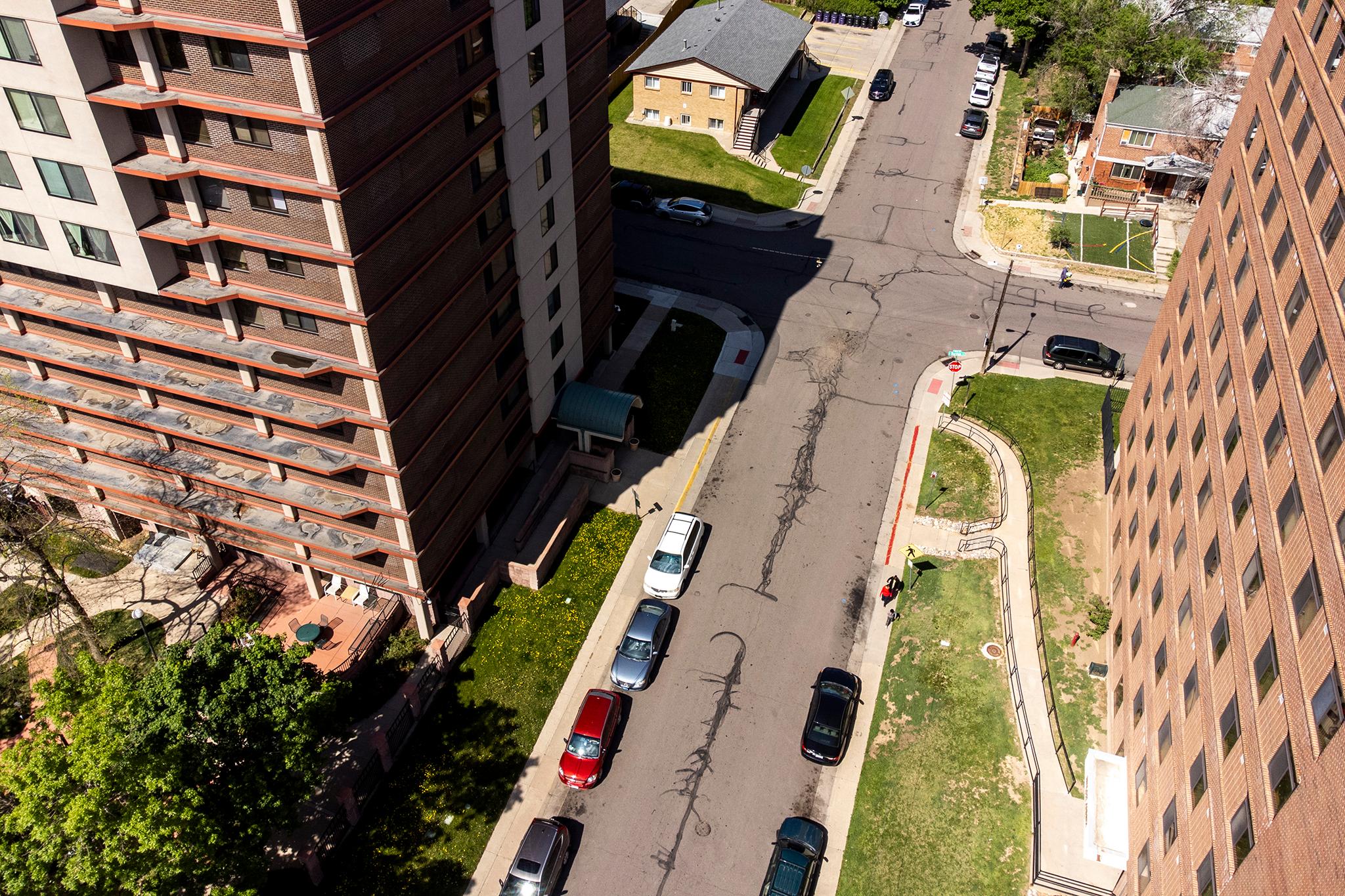Back in 2022, Denverites voted to make property owners pay fees to fund a massive sidewalk improvement and construction project.
Those new fees have been delayed twice, as city leaders figured out how to make the ballot measure work and changed how the fees are calculated.
In 2025, the fee is finally coming — adding up to $150 per year for most property owners.
“Since everyone benefits from a complete sidewalk network, all Denver property owners will pay the fee,” the city explained online.

Here’s how it will work.
The goal of Ordinance 307 was to fix or build functional sidewalks for the 40 percent of the city’s streets that are missing them.
DOTI estimates the fee will bring in $40 million a year for sidewalks. The ordinance says the work should be done in nine years, but the city can take longer if that’s not possible. Back in 2022, the city estimated it could take nearly 30 years.
“With a new fee approved by voters, Denver will begin creating a comprehensive program to repair hazardous sidewalks, reconstruct sidewalks that are deficient, and build sidewalks where they're missing,” the city explained online. “Since everyone benefits from a complete sidewalk network, all Denver property owners will pay the fee.”
Most Denver property owners will pay a flat fee of $150 yearly. But if you have more than 230 feet of street bordering your property (corner-lot readers, we’re looking at you), you’ll be paying an additional $3.50 per foot over 230 feet.
The fee applies to all kinds of property, including housing, stores and more.
The fee will appear on municipal stormwater bills. It will be divided into two payments for the first and second half of the year.
Whether their block has proper sidewalks or not, property owners have to pay. Even if they don’t have a sidewalk along their property, they still have to pay. If they have a homeowners association that handles their stormwater bills, the HOA would handle the fee.

If you’re uncertain what your fee will be, you can look it up online. The tool is a little slow and a little wonky, but it seems to work.
Struggling to afford the fee? You might qualify for an instant rebate. Eligibility is based on income and household size.
If you already receive the instant rebate for solid waste management services, you’re in luck. You’ll already get the sidewalk rebate and won’t need to reapply until your crash rebate ends.
If you don’t pay, you could wind up with a lien on your property.
Here’s what’s next for the sidewalk program.
Once money starts flowing in from fees, the city Department of Transportation and Infrastructure will hire a concrete contractor to starting making repairs. It will also hire a consultant to create a sidewalk master plan. All that was mandated in the original law voters approved.
Building and repairing sidewalks could take many years.
For now, the city’s focused on filling sidewalk gaps in Globeville and Elyria/Swansea. Those projects will be funded from the Elevate and Rise bond money voters separately approved.
If you’re wondering when specific segments will be fixed or sidewalks will be added, be patient. Denver doesn’t have a timeline yet. The first round of fixes and additions will be prioritized based on the city’s 2019 pedestrian and trail plan.
Check out the city’s sidewalk program page for more information.

What can you do about terrible sidewalks?
If you see abysmal sidewalk conditions, you can report them on Denver’s Online Services Hub.
Fair warning: This isn’t an on-demand service. But the issues you report will be inspected and may be “triaged,” the city said in a statement.
Some especially bad sidewalks will be flagged for the spot repair program.
If you want to see the spots DOTI has already inspected and that meet the criteria for the spot repair program, you can go here.
The city gave these examples as high-priority spots:
- Elevation differences bigger than an inch between two sections of sidewalk
- Gaps greater than an inch between two sections of sidewalk
- Major breaks and cracks in the sidewalk.

If you see tree roots damaging a sidewalk, a fix will take more time. Messing with the roots could kill the tree. Those projects require the city to bring in a forestry expert.
If you were hoping this massive sidewalk program would mean you no longer had to keep your sidewalks clear of snow, ice and debris, you’re out of luck. That’s not the point of the program. Shovel, friends. Shovel.
Maybe you have messed-up flagstone sidewalks? The city has no plans to fix those. If they’re bad enough, they could be replaced with concrete.
Impatient and want to do it yourself? That’s fine. But the city won’t reimburse you for your efforts. You have no new obligations to fix or add sidewalks that weren’t spelled out in city law before this measure passed.










